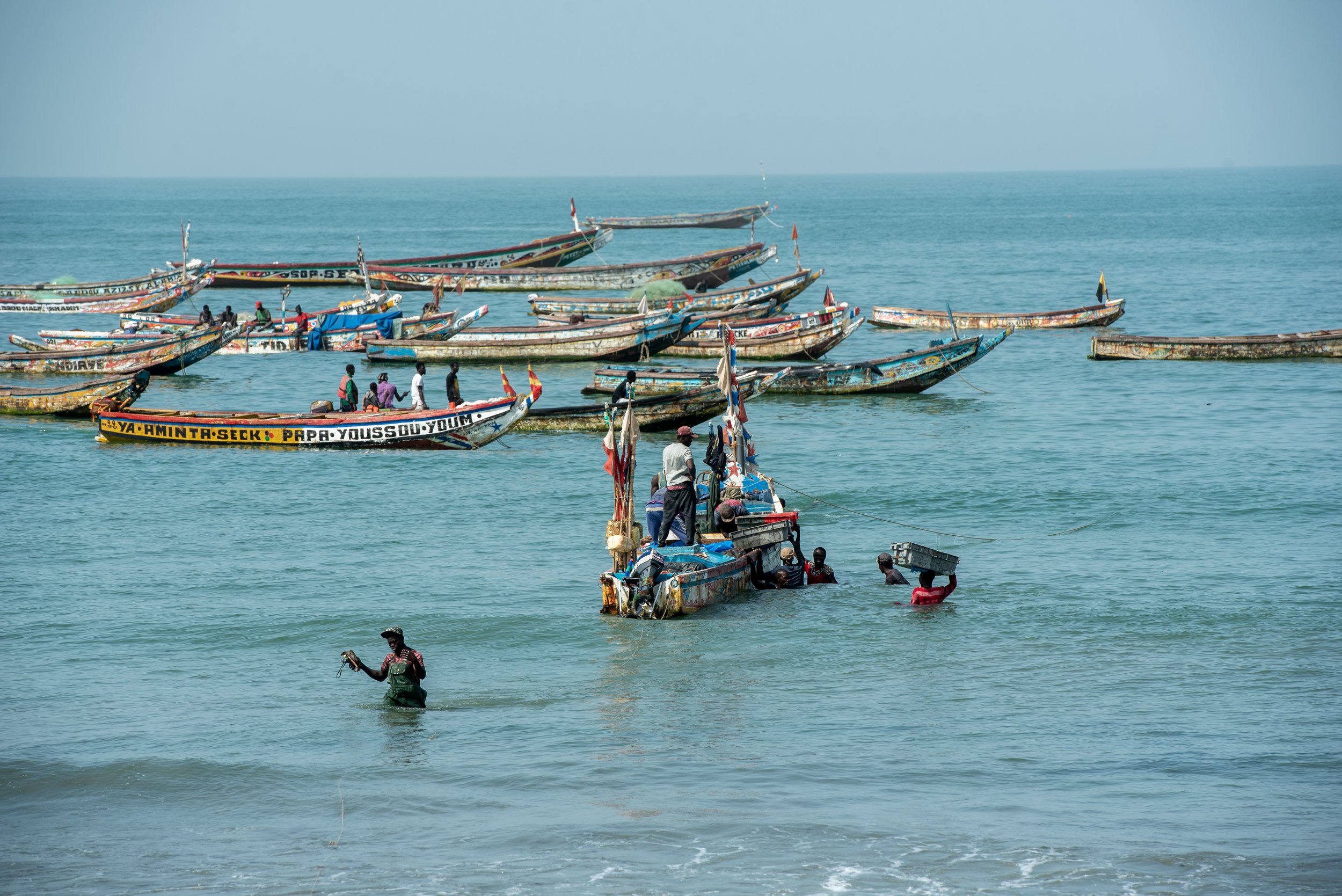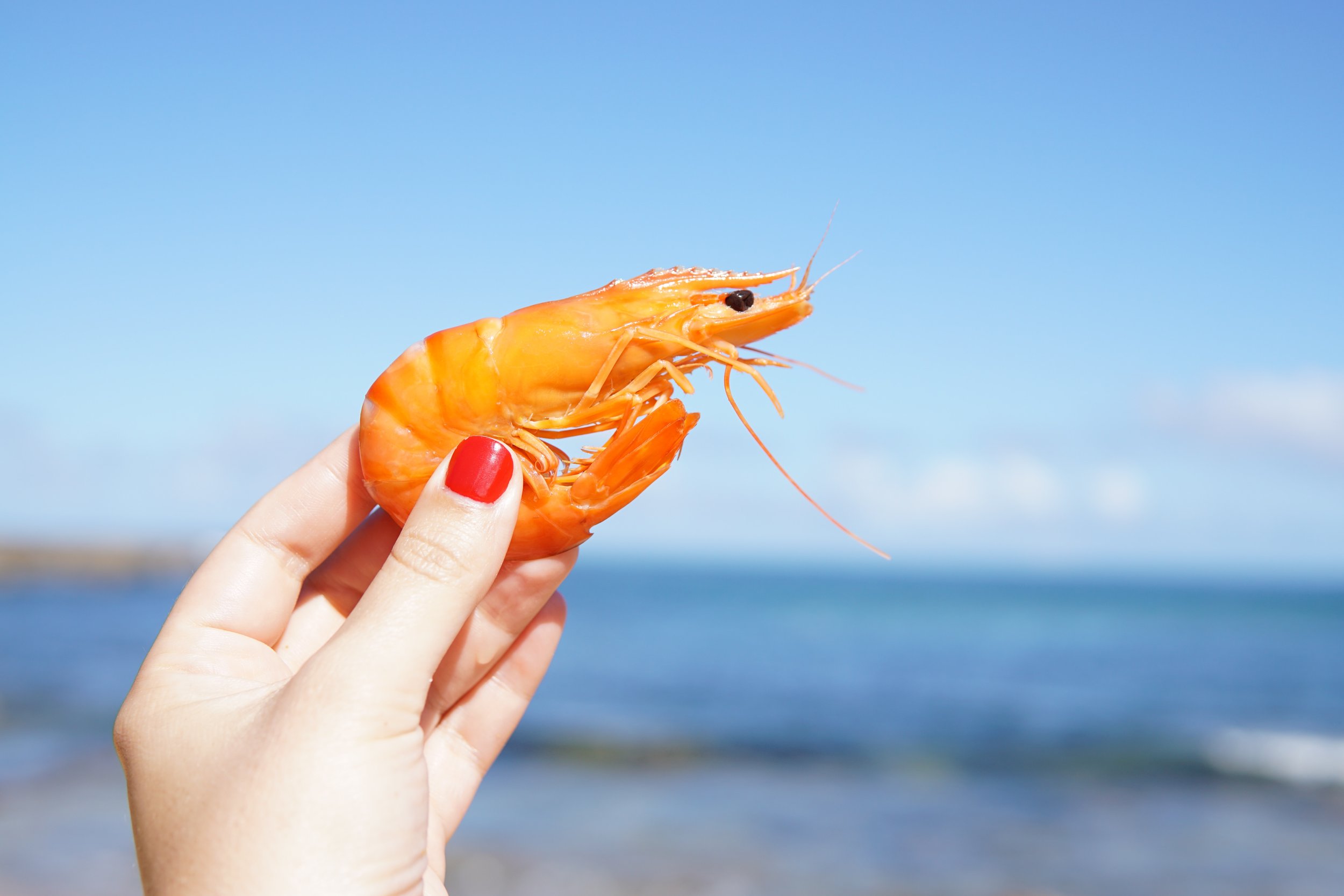As the European Commission launches a campaign to promote the consumption of EU aquaculture products, several NGOs warn of worrying developments in the aquaculture sector and recall that some forms of aquaculture are harmful and impact the livelihoods of small-scale fishing communities across the world.
Small-scale fishers should be at the centre of the European Oceans Pact
The EU should guarantee rights-based and equitable decision-making processes about ocean uses, ensuring the protection of the most vulnerable facing more powerful blue economy industries. Taking into account the role of artisanal fisheries in food security and poverty eradication in developing countries, the EU should also support SSF and sustainable fisheries management in its ocean partnership with African countries.
A CFP external dimension fit for the future: more focus on good governance, less on paying access rights for EU fleets
The author makes 4 recommendations to make the external dimension of the CFP more effective: (1) the EU should shift from access agreements to fisheries governance agreements, while (2) continuing to support informed participation of stakeholders in third countries; (3) it should also ensure that all vessels of EU origin, including those reflagged, abide by sustainability standards; and (4) it should actively engage, at international level, to promote transparent, fair, and sustainable access arrangements applicable to all fleets of foreign origin fishing in developing countries.
‘It takes two to tango’ – EU fishing partnerships agreements must become more attractive to partner countries
The Commission’s SFPA evaluation concludes that they are“fit for purpose” and identifies areas for improvement in the implementation of the governance framework. Most of these areas are under the responsibility of the partner country, which suggests that there is a lack of commitment from some partner countries to make these fishing agreements a success.
EU-Senegal fisheries partnership: transparency is essential at all levels
In a contribution sent to the European Commission, co-signed with 8 other civil society and environmental organisations, we highlight the most important points to be taken into account for the renewal of the protocol, to ensure that the fishing agreement has a positive impact for small-scale coastal fishing communities.
The EU must develop fisheries specific due diligence legislation
The Spanish presidency of the EU is seeking to finalise the negotiations for a corporate accountability directive before the end of December 2023, which would see European based companies take some degree of responsibility for what they do in third countries. We look at some key issues at stake for the third countries small scale fishers.
Will a "CFP tomorrow" support sustainable artisanal fisheries in Africa?
PRESS RELEASE: On 21 February, the Commission presented several measures to improve the sustainability of the EU fisheries and aquaculture sector. It includes four elements: Energy Transition, an Action Plan to protect and restore marine ecosystems, a Communication on the "common fisheries policy today and tomorrow and a Report on the Common Market Organisation for fishery and aquaculture products. How will these impact African small-scale fishing communities?
WTO agreement on fisheries subsidies: a mouse is born
For the agreement to contribute effectively to the Sustainable Development Goals, it is essential that the forthcoming negotiations, prior to the thirteenth ministerial conference, focus on the main threat to artisanal fisheries in Africa: overfishing and overcapacity, especially by foreign-owned vessels.
West Africa: PESCAO should be more effective and attentive to artisanal fisheries
The PESCAO programme for the improvement of fisheries governance in West Africa, financed by the EU from the 11th EDF Regional funds, started in June 2017 and will end in June 2024. After nearly 4 years, an evaluation is underway to assess the results obtained and to see how to improve its implementation, in a context where the countries of the ECOWAS region are focusing on the development of a blue economy strategy.
The Sustainable Blue Economy Finance Initiative: How to destroy the oceans responsibly
Efforts to make blue economy sustainable have led to increasing calls for better regulations on investments. The European Commission has provided funding for the United Nations Environment Programme (UNEP) to launch the Blue Economy Finance Initiative (BEFI). The BEFI has been celebrated in international conferences about blue economy, however, this article highlights the inherent weaknesses of voluntary guidelines in mitigating the threats financial investors pose to the destruction of the planet.
EU-Mauritania SFPA: The requests of the Mauritanian artisanal fisheries and civil society
This week the European Parliament is discussing a first draft by rapporteur Izaskun Bilbao on the Sustainable Fisheries Partnership Agreement between the European Union and Mauritania. This agreement is of great interest to the EU fisheries sector and is the most expensive of all fisheries agreements between the EU and third countries.
How will the EU contribute to support sustainable artisanal fisheries in Africa through its International Partnerships
The new EU regional programming for Africa gives fisheries and oceans greater importance. It also focuses more on small-scale fisheries stakeholders and civil society organisations, which is an opportunity for them to make their voice heard. This article covers a summary of the 2014-2020 and the ongoing 2021-2027 programming, calls for more policy coherence and recommends increased participation of stakeholders for greater and efficient use of the EU funding.
Joint statement - European and African decision-makers should join forces to support sustainable artisanal fisheries in Africa
In view of the summit that will bring together the leaders of the European Union and the African Union in Brussels on 17th and 18th February 2022 and in the context of the International Year of Artisanal Fisheries and Aquaculture (IYAFA), six civil society and professional organisations call the EU and AU to take concrete action in three key areas. Click on the link to read more.
Food promotion policy –the EU should encourage quality over quantity seafood consumption
This article looks at the sustainability concerns of both wild-caught fisheries and industrial aquaculture and argue that the EU should not promote seafood consumption but focus on providing accurate and complete information to consumers and look into the wider environmental and social sustainability issues throughout the fish value chain.
What future for Sustainable Fisheries Partnership Agreements?
In view of the global evaluation of the Sustainable Fisheries Partnership Agreements (SFPAs) that will be carried out by the Commission in 2021, the author highlights the key points which will need to be assessed from the perspective of the impacts on African coastal communities. The author also suggests essential improvements to be made for the future of SFPAs so that they better respond to the needs of these communities.
International Ocean Governance: more can be done to promote socially and environmentally sustainable fisheries
Replacing fisheries and decarbonizing the sector? We should not expect it from industrial aquaculture
This position paper explores the false promises of industrial aquaculture, highlights the key sustainability issues of promoting farming of carnivorous fish species, such as salmon, underscores the environmental and social impacts throughout the whole value chain and explains why the EU should stop promoting seafood coming from industrial aquaculture and instead focus on promoting sustainable small-scale and low impact fisheries and aquaculture.
EU Farm to Fork Strategy: Raising the ambition on global fisheries aspects
On World Food Day (16 October) we publish this short brief, which reviews the recommendations of the EU Food Policy Coalition on the global aspects of the EU Farm to Fork (F2F) strategy, underscoring that F2F largely ignores seafood production, and highlights EU trade, cooperation and imports aspects that are essential for sustainable external fisheries.


















